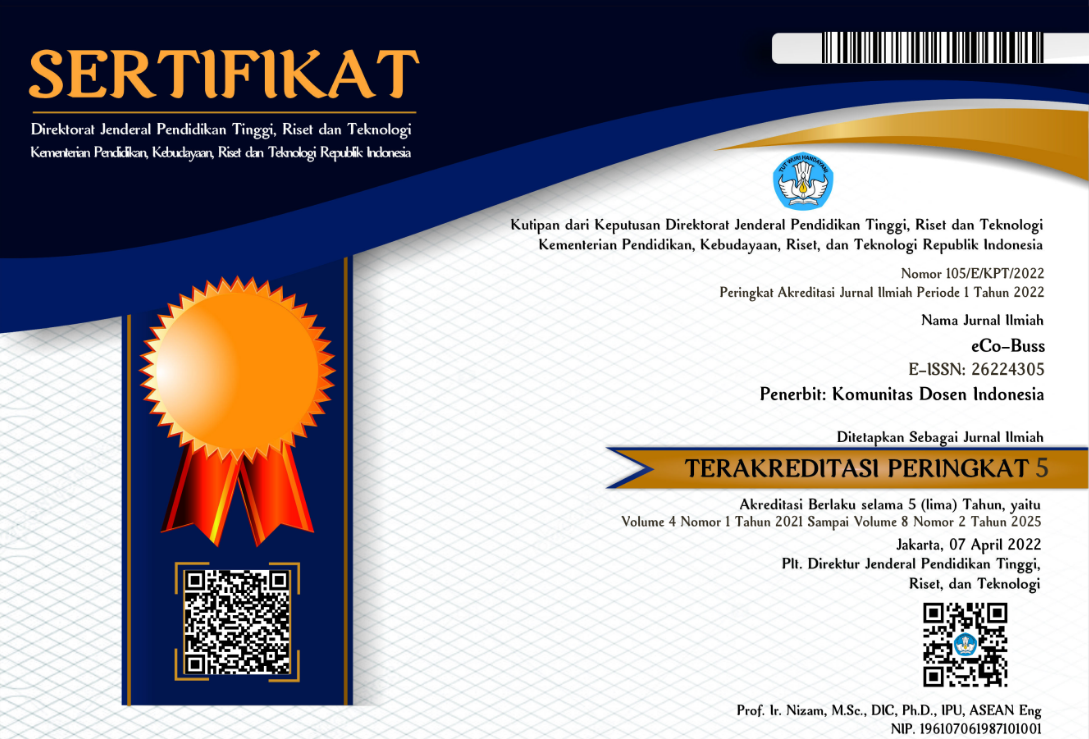Pengaruh Pemberian Kompensasi Terhadap Produktivitas Kerja Karyawan Melalui Semangat Kerja Divisi Penjualan Pada PT. Suka Fajar Pekanbaru
DOI:
https://doi.org/10.32877/eb.v6i1.740
Keywords:
Compensation, Work Productivity, employee morale
Abstract
Along with the increasingly intense competition in business, companies or organizations that run a business are required to be able to carry out their activities efficiently in order to achieve the company's goals that have been set. HR has an important role and is one of the benchmarks for the level of work productivity of employees in the company. This study aims to determine the effect of compensation on employee work productivity through morale. The method used in this study is to use descriptive and quantitative statistics. The samples taken amounted to 71 respondents using the total sampling technique. The data sources used in this study were primary data obtained through questionnaires which were then processed using statistical analysis, namely intervening regression analysis, outer model, inner model, direct effect test, and indirect effect test using the SmartPls program. The results of this study indicate that partially the variable of compensation (X) has an effect on employee work productivity (Y), partially the variable of compensation (X) has an effect on employee morale (Z), partially the morale variable (Z) has an effect on productivity employee work (Y). And simultaneously the compensation variable (X) influences employee work productivity (Y) through morale (Z).
Downloads
Downloads
Published
How to Cite
Issue
Section
License
Copyright (c) 2023 Weni Syafitri , Seno Andri

This work is licensed under a Creative Commons Attribution-ShareAlike 4.0 International License.






 DOI :
DOI :
 Abstract views: 257
/
Abstract views: 257
/  PDF downloads: 677
PDF downloads: 677

